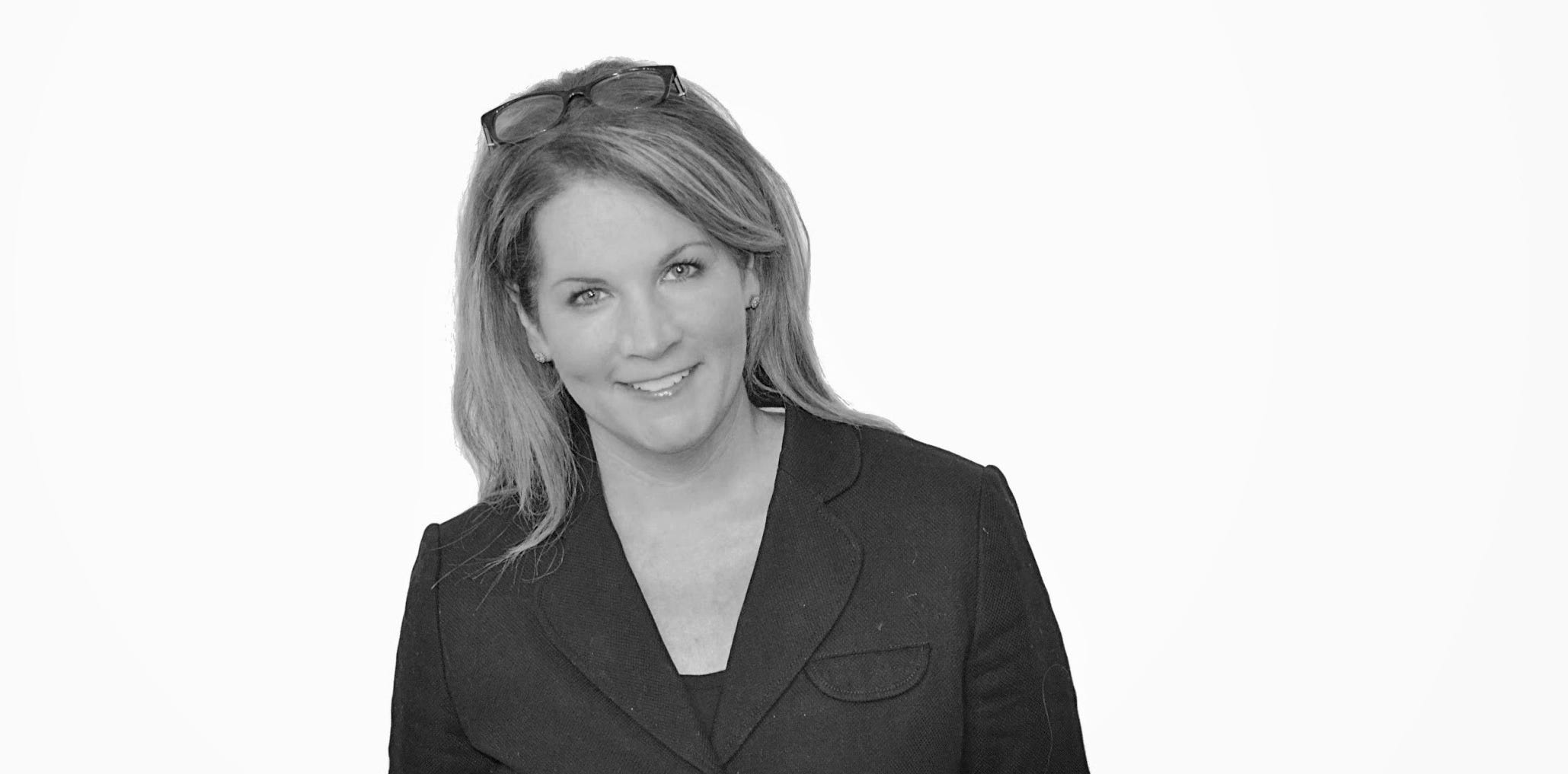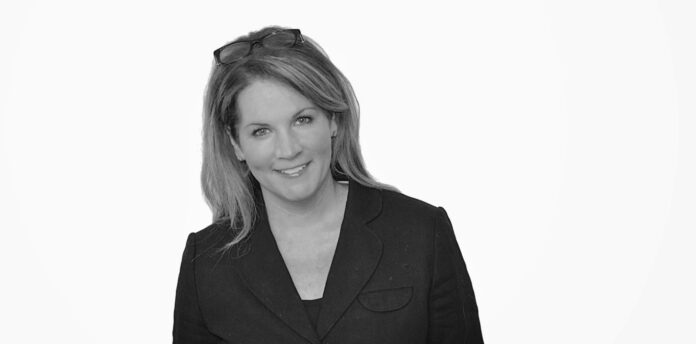Female Disruptors: Patty McDonough Kennedy is shaking up how people deal with disruption

“Games are won by players who focus on the field, not the ones looking at the scoreboard. Warren Buffet said this, and when a coach friend of mine underscored the importance of the process, I took note. When we studied a range of organizations undergoing transformation, it wasn’t the ones that trumpeted the “goal” that were winning. It was the ones that focused on the process, helped the team develop skills required to succeed and communicated authentically.”
I had the pleasure of interviewing Patty McDonough Kennedy. Patty is the founder of Kennedy Spencer, a consultancy that helps organizations more effectively communicate, grow and thrive. Founded in 2005, she expanded the company to Europe and serves clients around the world. A TEDx and national public speaker, Patty has lived and worked in the US, Europe and Africa and featured in Entrepreneur, Forbes and The Wall Street Journal. She authors “The Connection Mindset” blog and developed Dialogue 4.0 — a communication tool that helps teams change and thrive. Patty is a dual American-Irish citizen, board member of the Bronx Charter School for the Arts and proud St. Bonaventure University graduate.
Thank you so much for doing this with us! What is your “backstory”?
Over the past 20+ years, I’ve worked with some incredible people in the US, Europe and Africa for small and large organizations including names like P&G, Kraft, Coca-Cola and Credit Suisse, helping to transform brands, teams, revenues and organizations.
Working overseas taught me so much. There were times when the teams didn’t even speak the same language, but we still had to effectively communicate and did. In fact, despite our cultural, gender, age and background differences, we thrived as teams. It demonstrated an important lesson — that Abraham Maslow first outlined in his motivational theory — we all are connected in our humanity, motivated by the same core needs and desires, and share an ability to thrive.
In 2005, I founded my communication consultancy. We had a great team, clients, relationships and experience that enabled us to pivot the business and work on some exciting — and high-stakes — transformation programs. It was a busy time, given digital disruption and 90% of companies planning a change. Organizations that pivot well achieve tremendous growth (Apple, anyone?) but for the 70% of organizations that don’t, the effects are disastrous — both on people’s well-being and organizational growth. In the past two years, toxic cultures, stress levels have skyrocketed, as have physical and mental illness, hospitalizations and chronic disease. The workplace was recently noted as the 5th cause of death in the US!
During this time, I also went through a number of personal changes that were extremely challenging. I took one of those online stress tests and my computer nearly exploded. It was a tough time, but also my “A-ha” moment. Change is part of life and business, something every organization and person has the ability to do well, but especially in the workplace, employees weren’t coping well. I was interested in finding a better way forward.
Joining forces with business leaders, neurologists and behavioral scientists, we conducted a study on the impact of change and communication on our brains and behaviors. We spoke to 75 leaders, analyzed countless case studies, online dialogues, even EEG results. The data was incredible. We were able to draw very clear links between organizations that were able to motivate people, grow and thrive (OTT) and those that through dialogue (communication & actions) threatened core needs, failed to grow and thrive (FTT). It came down to the people, process and communication. We developed Dialogue 4.0 — a pragmatic model that demonstrably led to 50% increase in revenues, doubled retention for one non-profit, and 30% growth of a $100 million company. The numbers are significant and the stories of how people improved relationships with colleagues and bosses are extraordinary. We are implementing the model with a number of large financial service organizations and consultancies to enhance their existing programs.
When people and teams thrive, organizations and thrive. We all have the power to make that happen in very immediate and sustainable ways. Sharing this approach has become my mission.
Why did you found your company?
I think the purpose more found me.
In 2005, the company initially grew organically from one client and project and was successful because I focused on the client, the process and built the relationship.
Later, the study and model were born of necessity.
We’d already been running effective communication programs. We developed the change model following the study and after discussions with leaders and employees. It was clear that people weren’t thriving, despite their absolute desire and ability to do so. I personally needed to learn, pivot and grow (and dig out of my own stuff) and wanted to see individuals, teams and organizations do the same. We knew it would work, but even the team was surprised at the results.

What is it about the work you’re doing that’s disruptive?
The economy, the way we connect and communicate has been turned on its head, so we needed to do the same with the communication process. While digital media isn’t the problem per se, it is an incendiary force, making the challenge of change and leadership even more difficult. Digital media has an important part to play, as it often meets more actualized needs like providing a sense of community, belonging, and esteem. However, what we found is that today’s workplace tends to over focus on those needs, while threatening core/basic needs: safety, financial security, authentic relationships, mental & physical health — which lead to tremendous sickness, chronic disease, cost, as well as low individual, team and organizational performance.
It’s ironic you’re asking about disruption, because change is one of the most disruptive forces in our business and lives, particularly given the overwhelming world of digital. Dialogue 4.0 is actually a calming, disciplined, pragmatic approach to that disruption, used as a way for people more effectively communicate with each other, motivate behaviors and thrive. If done well, it takes care of the numbers.
We all need a little help along the journey — who have been some of your mentors?
I really do get inspiration from so many. People would likely be shocked at who inspires me.
There are people like Maya Angelou, Brene Brown, Arianna Huffington, Richard Branson whom I admire for being brave, authentic, vulnerable, resilient, inspirational and able to pivot their lives, careers and organizations.
But real-life mentors, I have many. A few professional stand-outs include my first bosses: Becky York, Mike Willard and Pat Ford, who were models of great managers, successful and authentic people and today are friends. My first client, Dan Dwight, CEO of Cooley Group, who — 12 years later — is still a client and friend. He is an incredible high-integrity leader who successfully transformed his company and led it to amazing growth.
Personally, my father founded and built his own successful law firm, and inspires me. I have several people with whom I regularly speak, share ideas, and we challenge each other. I continue to learn a lot from them. They know who they are. Also, my children. If you’re a parent, you understand how challenging communication can be, its immediate productive or destructive impact on another human being.

How are you going to shake things up next?
The model has received a lot of attention because of the results, so we are in the midst of launching it more widely. We’ve begun to train several complex organizations undergoing transformation and speak about the model.
The goal is to train as many smart organizations as possible- particularly in the financial services and education space — to help get them get where “the good stuff is.” There is so much potential and possibility, not just for my company, but the people we serve and who THEY serve. We’re excited about how well it’s been received.
Can you share 3 of the best words of advice you’ve gotten along your journey? Please give a story or example for each.
· People matter most. If you truly put your people first — not just what you do, but in the way you relate to them; they’ll take care of your teams, customers, and numbers.
· The best leaders create pathways for growth. Creating superstar teams isn’t about solving people’s problems. You can’t truly solve another person’s problem — that has to come from the person in order for the person to thrive. The best leaders remove barriers and create pathways to allow for that.
· Games are won by players who focus on the field, not the ones looking at the scoreboard. Warren Buffet said this, and when a coach friend of mine underscored the importance of the process, I took note. When we studied a range of organizations undergoing transformation, it wasn’t the ones that trumpeted the “goal” that were winning. It was the ones that focused on the process, helped the team develop skills required to succeed and communicated authentically.
What’s a book/podcast/talk that’s had a deep impact on your thinking? Share a story with us.
That’s a tough one because I read about a book a week. The Intelligent Investor, Thinking, Fast & Slow, and Blink are top 3 because they all relate to human behavior, motivation, relationships and decision-making and how that manifests in some pretty spectacular ways.
Some of the biggest names in Business, VC funding, Sports, and Entertainment read this column. Is there a person in the world, or in the US whom you would love to have a private breakfast or lunch with, and why? He or she might see this. 🙂
I’d love to meet with Lerer Hippeau Ventures, because they invest in relationships and organizations that help people thrive. Dialogue 4.0 improves relationships, and the growth potential and projections are strong — particularly if we scale wisely.
Personally, I find intelligent people — who are perhaps a little quirky — to be the most interesting and the most fun! I’d love to meet Neil deGrasse Tyson, because he’s fascinating, knows everything, and I am a science geek. I’d love to meet Jack Dorsey, because he is in this incredibly unique position of leading a platform that continues to change the social fabric and discourse of the world. This is true for other platforms, but I think the power of productive and destructive dialogue is most evident on Twitter. I’m interested to see what he’ll do next. Can we make this a dinner party? If so, I’d probably invite Dave Grohl from the Foo Fighters, JK Rowling and the Pope too. I have a lot of questions for them. And that’d be a great dinner party!
How can our readers follow you on social media?
- Twitter pmkennedy1
- Linked In: www.linkedin.com/in/pattymcdonoughkennedy/
- Instagram: @pattymkennedy
- Connection Mindset: https://kennedyspencer.net/#Blog
This was very inspiring. Thank you so much for joining us!
Thank YOU so much! I really appreciate it and the work you’re doing helping people thrive.


